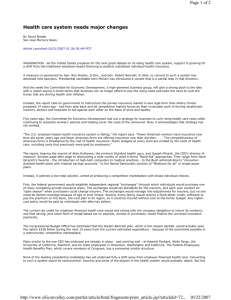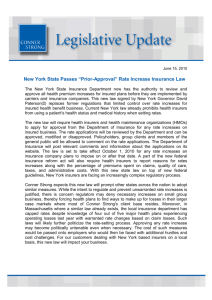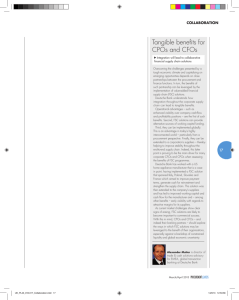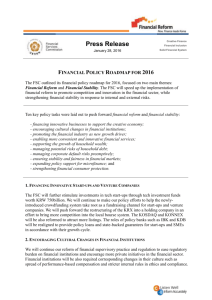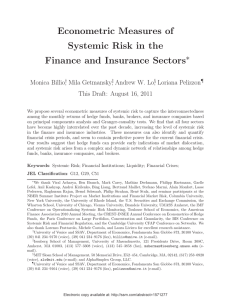Financial Stability Committee deliberates on risks from low
advertisement
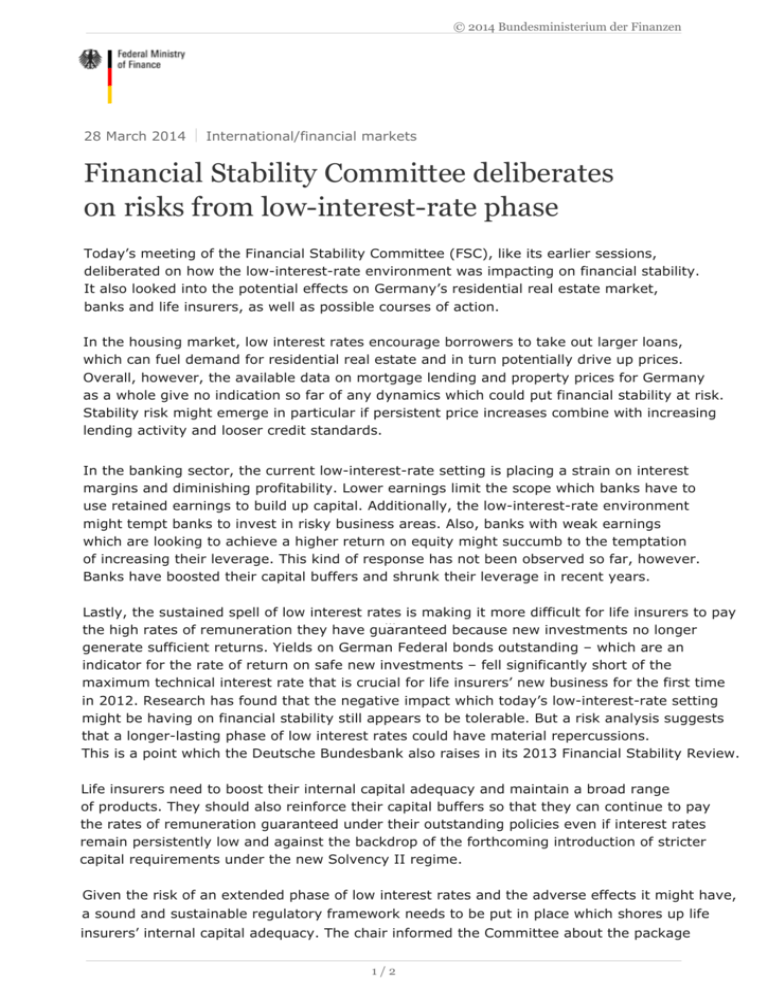
© 2014 Bundesministerium der Finanzen 28 March 2014 International/financial markets )LQDQFLDO6WDELOLW\&RPPLWWHHGHOLEHUDWHV RQULVNVIURPORZLQWHUHVWUDWH SKDVH Today’s meeting of the Financial Stability Committee (FSC), like its earlier sessions, deliberated on how the low-interest-rate environment was impacting on financial stability. It also looked into the potential effects on Germany’s residential real estate market, banks and life insurers, as well as possible courses of action. In the housing market, low interest rates encourage borrowers to take out larger loans, which can fuel demand for residential real estate and in turn potentially drive up prices. Overall, however, the available data on mortgage lending and property prices for Germany as a whole give no indication so far of any dynamics which could put financial stability at risk. Stability risk might emerge in particular if persistent price increases combine with increasing lending activity and looser credit standards. In the banking sector, the current low-interest-rate setting is placing a strain on interest margins and diminishing profitability. Lower earnings limit the scope which banks have to use retained earnings to build up capital. Additionally, the low-interest-rate environment might tempt banks to invest in risky business areas. Also, banks with weak earnings which are looking to achieve a higher return on equity might succumb to the temptation of increasing their leverage. This kind of response has not been observed so far, however. Banks have boosted their capital buffers and shrunk their leverage in recent years. Lastly, the sustained spell of low interest rates is making it more difficult for life insurers to pay the high rates of remuneration they have guaranteed because new investments no longer generate sufficient returns. Yields on German Federal bonds outstanding – which are an indicator for the rate of return on safe new investments – fell significantly short of the maximum technical interest rate that is crucial for life insurers’ new business for the first time in 2012. Research has found that the negative impact which today’s low-interest-rate setting might be having on financial stability still appears to be tolerable. But a risk analysis suggests that a longer-lasting phase of low interest rates could have material repercussions. This is a point which the Deutsche Bundesbank also raises in its 2013 Financial Stability Review. Life insurers need to boost their internal capital adequacy and maintain a broad range of products. They should also reinforce their capital buffers so that they can continue to pay the rates of remuneration guaranteed under their outstanding policies even if interest rates remain persistently low and against the backdrop of the forthcoming introduction of stricter capital requirements under the new Solvency II regime. Given the risk of an extended phase of low interest rates and the adverse effects it might have, a sound and sustainable regulatory framework needs to be put in place which shores up life insurers’ internal capital adequacy. The chair informed the Committee about the package 1/2 © 2014 Bundesministerium der Finanzen of measures which the Federal government had lined up to address this matter. Continued close monitoring of this sector by the supervisory authorities is also needed. The Committee will continue to carefully monitor and analyse how a persistent low-interest-rate setting might affect financial stability, particularly in the areas of housing, banking and life insurance. About the FSC The Financial Stability Committee (FSC) was established in March 2013 to oversee financial stability. A similar institution at the European level is the European Systemic Risk Board (ESRB), which is based at the European Central Bank in Frankfurt. The Federal Ministry of Finance, the Bundesbank and the Federal Financial Supervisory Authority (BaFin) each have three voting representatives on the Financial Stability Committee, while the Federal Agency for Financial Market Stabilisation (FMSA) has one non-voting advisory representative. The FSC convenes once every quarter, the next meeting being scheduled for June 2014. 2/2

